Physical Address
304 North Cardinal St.
Dorchester Center, MA 02124
Physical Address
304 North Cardinal St.
Dorchester Center, MA 02124
Chicken soup has long been a traditional remedy for illness, and there are solid reasons for its popularity. It serves as an easily digestible source of vitamins, minerals, calories, and protein—nutrients that your body often requires in higher amounts during recovery.
Additionally, chicken soup is a great source of fluids and electrolytes, which can be especially important if you’re at risk of dehydration due to diarrhea, vomiting, sweating, or fever.
The warmth of the soup can also help alleviate congestion, as hot or spicy liquids are known to provide relief in this regard.
Moreover, the chicken in the soup contains the amino acid cysteine. N-acetyl-cysteine, a form of cysteine, can help break down mucus and offers antiviral, anti-inflammatory, and antioxidant benefits.
Homemade chicken soup made with bone broth is particularly rich in collagen and nutrients that may support recovery, though there is currently insufficient research to conclusively validate the effects of bone broth on immune health.

Similar to chicken soup, broths are fantastic sources of fluids and electrolytes that can be beneficial when you’re unwell. When served hot, they can also help alleviate sinus congestion.
Broths are flavorful and packed with various nutrients while remaining gentle on your digestive system.
Furthermore, bone broths are particularly rich in collagen and amino acids—essential building blocks of protein derived from animal bones—which may aid in promoting quicker recovery, although more research is needed to confirm these benefits.
If you’re following a salt-restricted diet, opt for low-sodium or no-salt-added options when purchasing premade broths from the store.

Garlic is renowned for its numerous health benefits and has been utilized in herbal medicine for centuries.
Research conducted in test tubes and on animals has demonstrated that garlic possesses antibacterial, antiviral, and antifungal properties.
A 2016 study found that aged garlic extract supplements might enhance immune function and reduce the severity of colds and the flu.
Incorporating garlic into your meals while you’re sick can not only boost flavor but also enhance the effectiveness of your food in combating cold and flu symptoms.
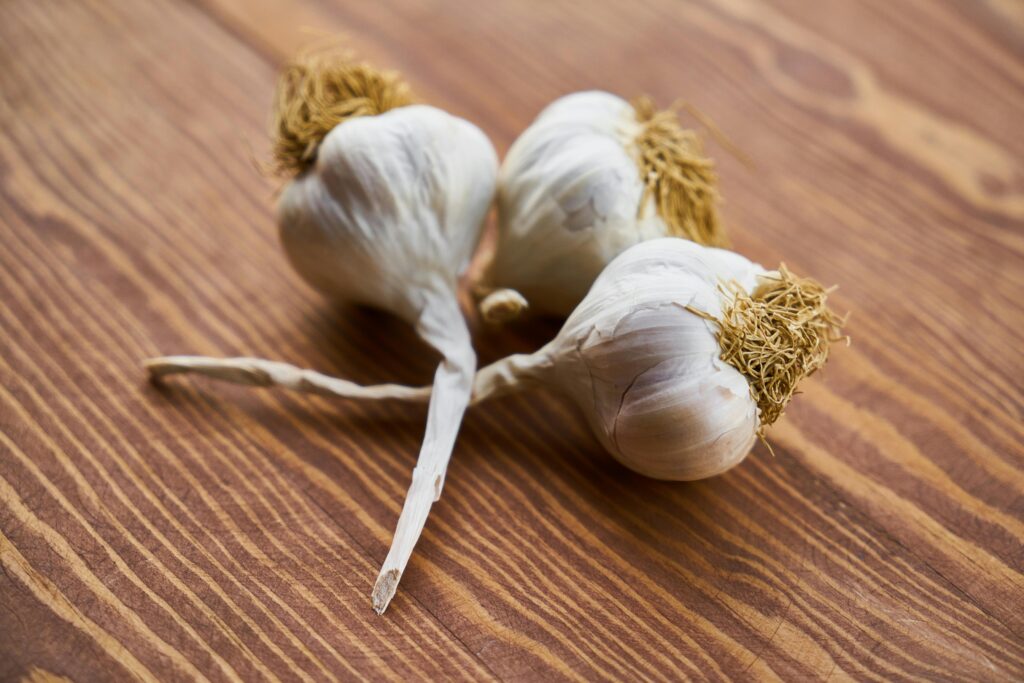
Coconut water is an excellent drink to enjoy when you’re unwell. It is packed with electrolytes that need to be replenished, especially if you’re experiencing vomiting, sweating, diarrhea, or a fever.
Additionally, it contains a small amount of natural sugar from the fruit, providing a quick and easily accessible source of energy for your body.
However, an older study indicated that coconut water may lead to more bloating compared to other electrolyte beverages. If you haven’t tried it before, it might be wise to start with a small amount.
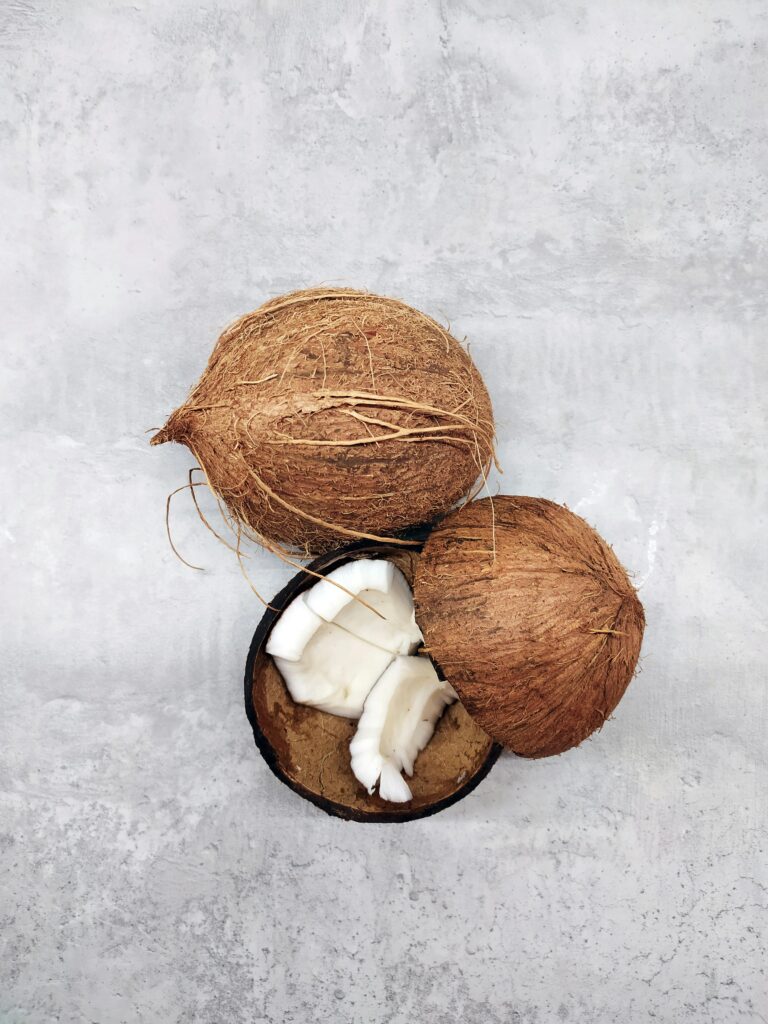
Tea is a favorite remedy for many colds and flu symptoms.
Just like chicken soup, hot tea acts as a natural decongestant. The tea needs to be hot to help relieve congestion, but it shouldn’t be so hot that it further irritates your throat.
Although some teas contain caffeine, research suggests that tea doesn’t contribute to dehydration or cause any increased water loss.
This means sipping on tea throughout the day is a great way to stay hydrated while relieving congestion.
Tea also contains polyphenols. These natural substances found in plants may have many possible health benefitsTrusted Source, including antioxidant, anti-inflammatory, and anticancer effects.

Honey possesses antibacterial properties and is commonly used as an antiseptic dressing for cuts and burns.
It may also help stimulate the immune system. Many individuals use local raw honey to alleviate seasonal allergies, although research supporting this claim is still limited.
Furthermore, honey can be effective in suppressing coughs in children. However, it should not be given to infants under 12 months old due to the potential risk of contamination with botulism-causing bacteria.
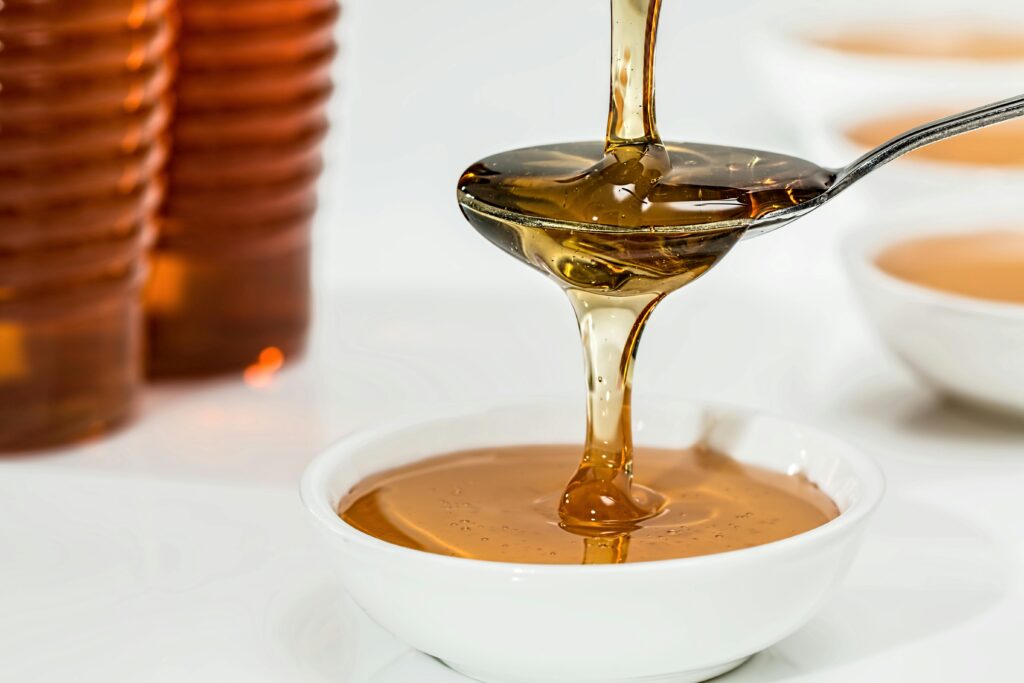
Ginger is commonly used in cooking, herbal medicine, and home remedies, and is particularly renowned for its ability to combat nausea. Research indicates that it can effectively alleviate nausea associated with pregnancy and cancer treatments.
If you’re experiencing nausea or vomiting, ginger is one of the most effective natural remedies to help relieve these symptoms.
You can incorporate fresh ginger into your meals, brew ginger tea, or purchase ginger ale from the store. Just be sure that the product you choose contains real ginger or ginger extract, rather than just artificial ginger flavor.
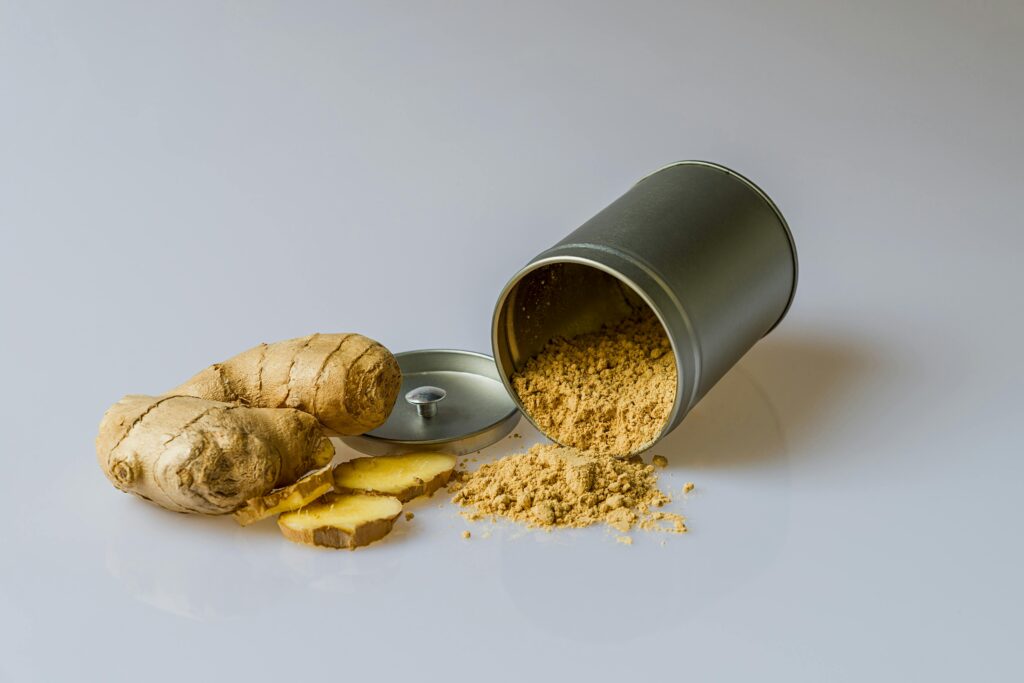
Spicy foods, such as chili peppers, contain capsaicin, which produces a hot, burning sensation upon contact.
In sufficient amounts, capsaicin can have a desensitizing effect, and it’s often found in pain-relieving gels and patches.
Many people notice that consuming spicy foods leads to a runny nose, helping to break up mucus and clear sinus passages.
Although few studies have directly tested this effect, capsaicin appears to thin mucus, making it easier to expel. Some research suggests that nasal sprays containing capsaicin may alleviate congestion and itching.
However, if you’re already experiencing an upset stomach, it’s best to avoid spicy foods, as they can lead to bloating, pain, and nausea in some individuals.
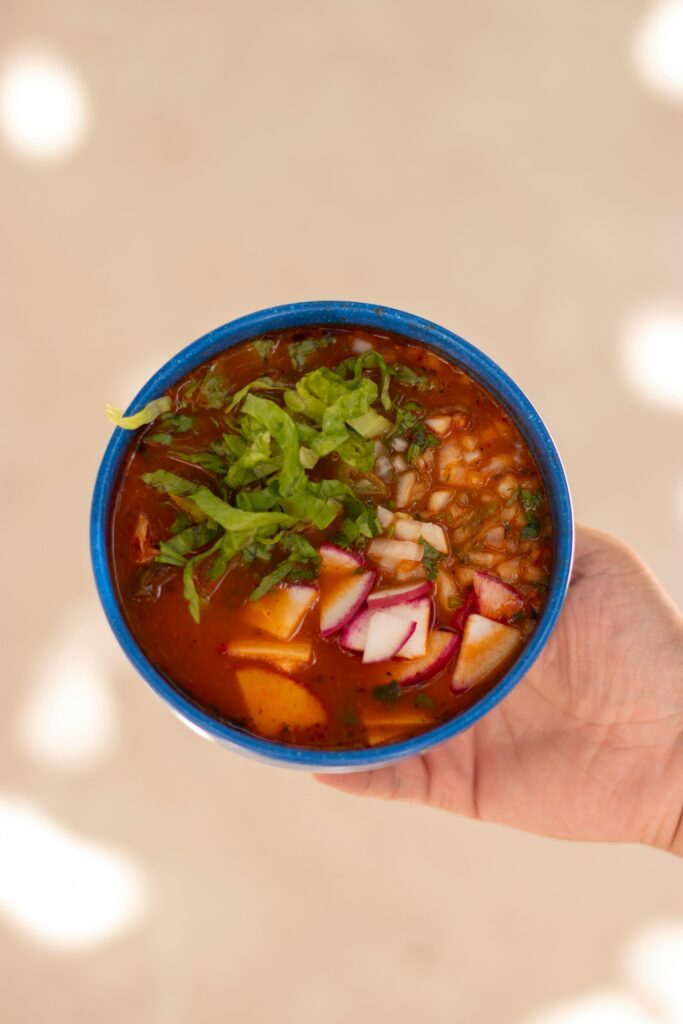
Bananas are an excellent food choice when you’re feeling unwell. They are soft, bland, and packed with nutrients as well as quick-acting carbohydrates. The potassium found in bananas helps replenish your electrolyte levels, as potassium is a vital electrolyte for your body.
Additionally, bananas contain soluble fiber, which forms a gel when mixed with liquid. This property can help alleviate diarrhea by decreasing the amount of excess water in your digestive tract.

Like bananas, oatmeal is bland and easy to eat but also provides calories, vitamins, and minerals you need when you’re sick.
A 2021 research reviewTrusted Source suggests that oats may help boost your immune system and aid digestion. Still, more research is needed.
Instead of buying artificially flavored oatmeal with lots of added sugar, consider adding a small amount of honey or fruit to rolled or steel-cut oats for even more health benefits.
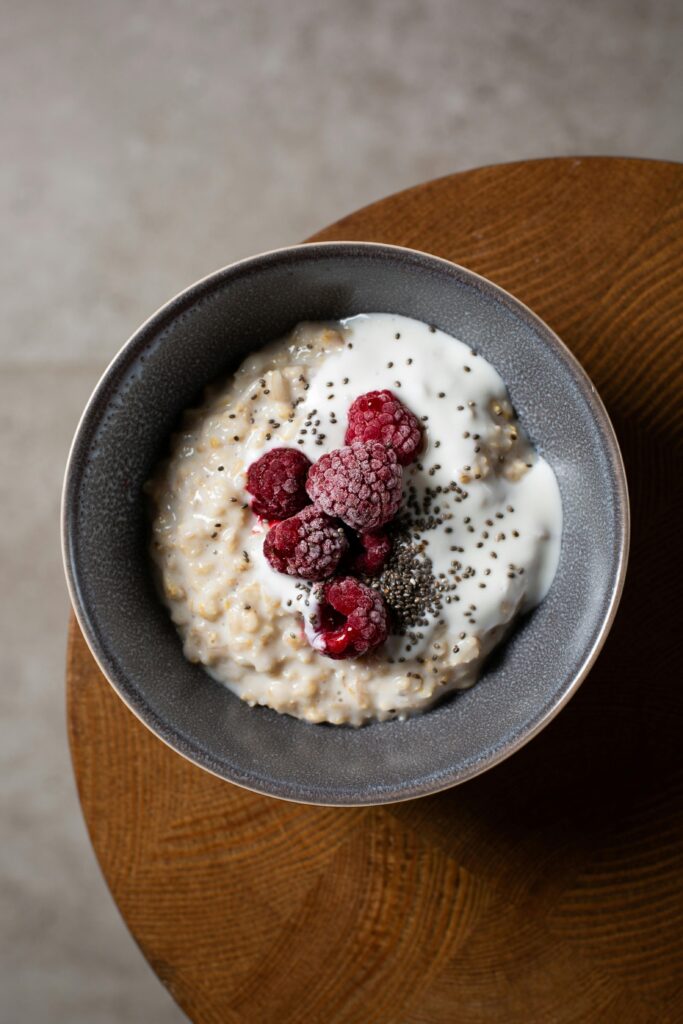
Yogurt is rich in beneficial probiotics—strains of bacteria that can inhabit your gut and offer various health benefits.
Studies indicate that probiotic dairy products like yogurt can help reduce the frequency of colds in both children and adults, promote quicker recovery when sick, and decrease the need for antibiotics.
However, some individuals find that consuming dairy thickens their mucus secretions, which can be particularly troublesome when they’re unwell.
If you notice that dairy worsens your congestion, you might want to explore other probiotic options, such as kombucha, or consider taking a probiotic supplement instead.
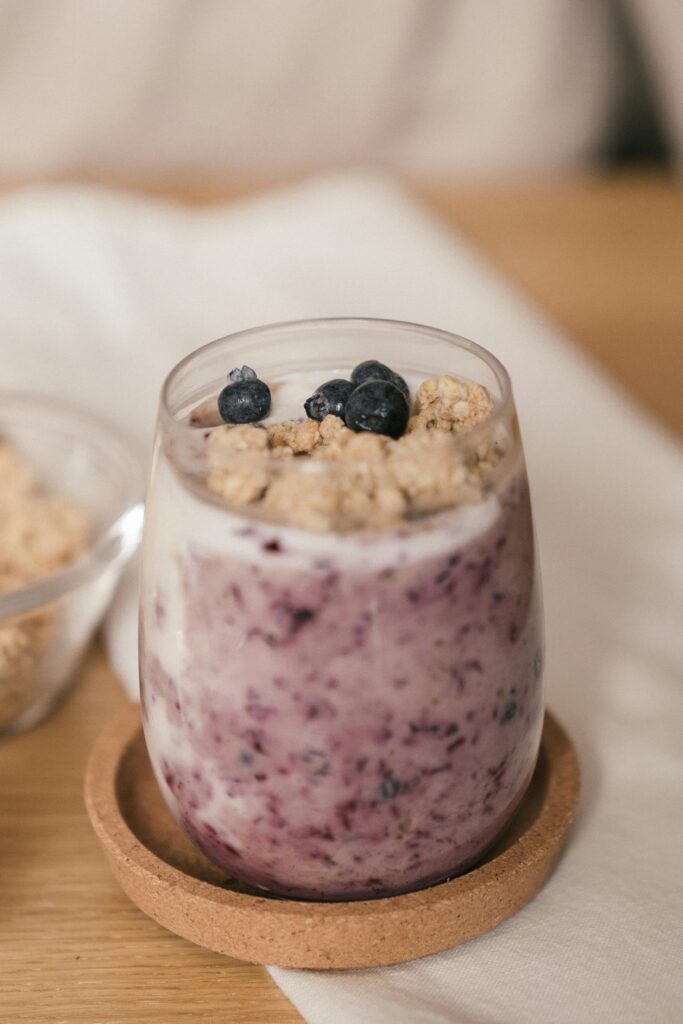
Fruits are rich sources of vitamins, minerals, antioxidants, and fiber, which can support your overall health and immune function.
Many fruits are rich in vitamin C, an antioxidant that helps your immune system function properlyTrusted Source.
Some fruits contain antioxidants called anthocyanins, which give certain fruits — like strawberries and blueberries — their red and blue colors.
Anthocyanins make berries excellent foods to eat when sick because they have strong anti-inflammatory, antiviral, and immune-boosting effects.
Studies show that fruit extracts high in anthocyanins can prevent common viruses and bacteria from attaching to cells. They also stimulate your body’s immune response.
Additionally, one reviewTrusted Source of 14 studies noted that flavonoid supplements, which are made from specific antioxidants found in fruit, were linked to a 40% reduction in the number of days people were sick with a cold. However, the researchers cautioned that the results were unclear.
Add some fruit to a bowl of oatmeal or yogurt for more health benefits, or blend frozen fruit into a cold smoothie that soothes your throat.

Avocados are packed with healthy monounsaturated fats, fiber, vitamins, and minerals.
They make an excellent food choice when you’re unwell because they supply the calories, vitamins, and minerals your body requires. Additionally, they are soft, relatively bland, and easy to consume.
The healthy fats in avocados, particularly oleic acid (the same beneficial fatty acid found in olive oil), may help reduce inflammation and contribute to immune function.
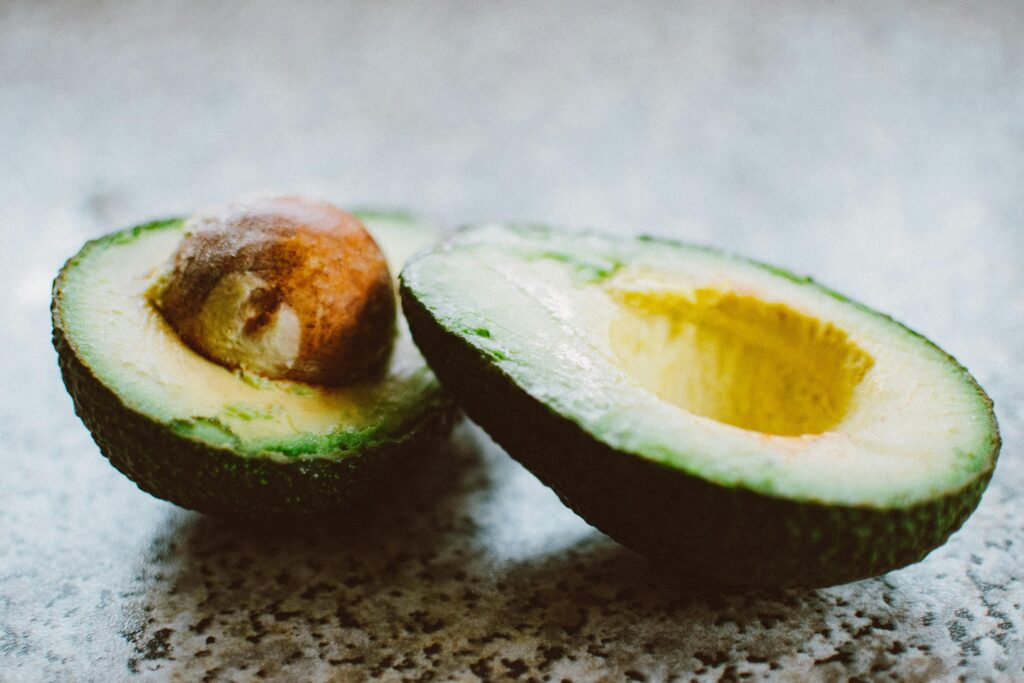
Leafy greens like spinach, romaine lettuce, and kale are rich in vitamins, minerals, and fiber. They are particularly good sources of plant-based iron, vitamin C, vitamin K, and folate.
These dark green vegetables are also abundant in polyphenols, which serve as antioxidants to protect cells from damage and help combat inflammation.
You can incorporate spinach into an omelet for a quick, nutrient-dense, protein-rich meal, or add a handful of kale to a fruit smoothie. Additionally, most leafy greens are excellent in soups, making them a fantastic option when you’re feeling unwell.

Salmon is an excellent protein source to consume when you’re feeling unwell. It’s soft, easy to eat, and packed with high-quality protein essential for recovery.
This fish is particularly high in omega-3 fatty acids, known for their potent anti-inflammatory properties, which may enhance the effectiveness of your immune system.
In addition, salmon provides a wealth of vitamins and minerals, including vitamin D, which many people tend to lack. Vitamin D is crucial for proper immune function.
When you’re sick, resting, staying hydrated, and ensuring you get proper nutrition are vital for feeling better and recovering quickly.
Fortunately, many foods offer benefits that extend beyond just supplying nutrients.
While no single food can cure an illness on its own, choosing the right foods may help bolster your immune system and alleviate certain symptoms.